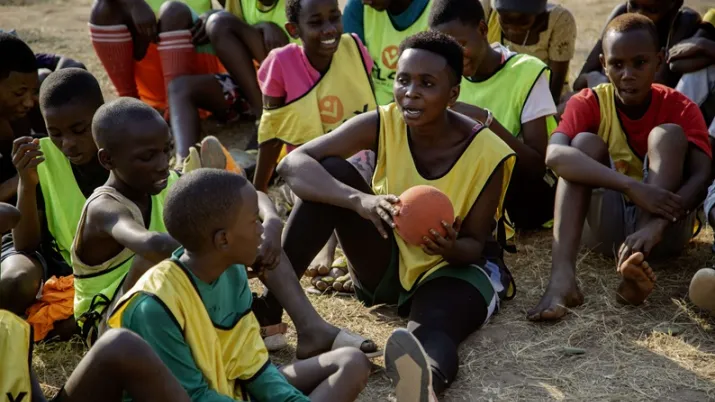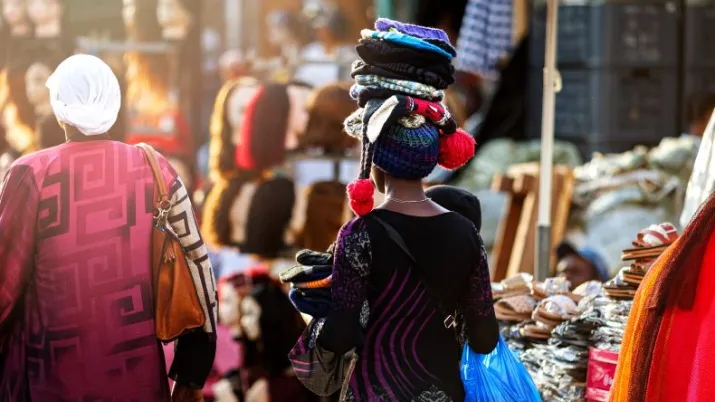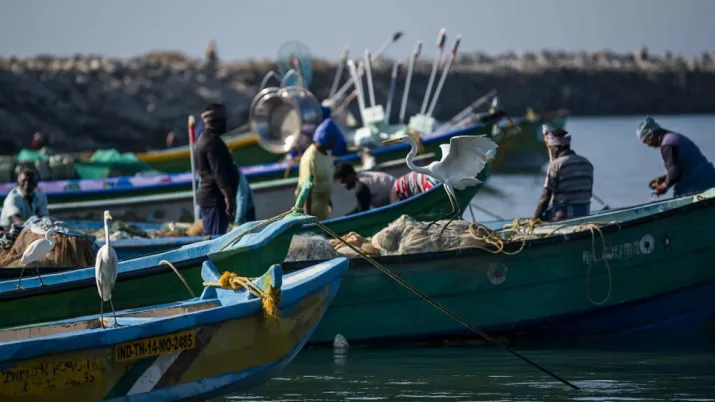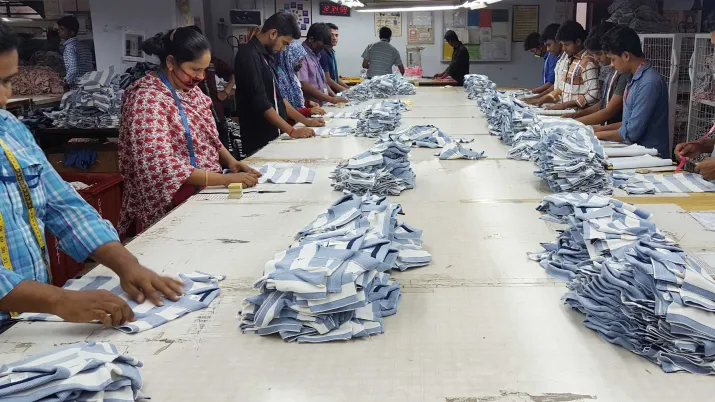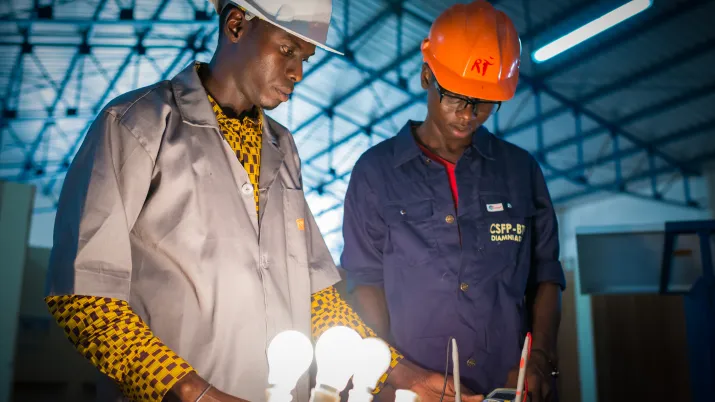Share the page
Decent Work
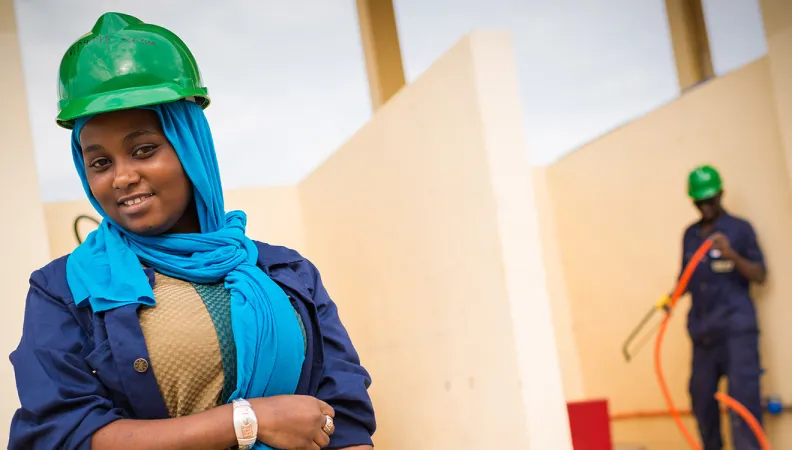
Our commitment
Offering everyone access to decent work provides them with the opportunity to support themselves, develop their potential and participate in the development of their country. AFD supports public and private stakeholders in the shaping and implementation of actions aimed at ensuring that as many people as possible have access to decent jobs.
Our approach
Each year, 40 million people, the majority of them young Africans, enter the labor market, while work is being transformed by globalization and technological developments. Besides, 2 billion workers are in informal employment, and one worker dies every 15 seconds due to a work-related accident or illness.
AFD is investing to support economic activity and increase both the number and quality of jobs. Our aims: improve people’s standard of living, business productivity, private sector dynamism, social cohesion, trust in institutions and citizen participation. Developing decent work means defending the human value of work, strengthening the economy and the attractiveness of the territories and helping to build a fairer society by reducing inequalities.
This is why we are supporting:
- individuals’ career paths, from improving their employability through to their integration into the labor market
- changes in work through improved employment quality and professional equality, in particular between women and men.
AFD and decent work: promoting access to quality jobs for everyone
Following up on the skills development programs (education, vocational training, higher education), AFD is working to improve the employability of individuals by focusing on professional integration from the outset of the training, and by supporting individuals towards employment opportunities.
The Bab Al Amal project in Chad, for example, supports the socio-economic integration of young people in vulnerable situations by providing guidance, personalized mentoring and support services for skills training programs and by developing apprenticeships, in line with the corporate requirements of the country.
In Tunisia, the ACJEMP project enables young people, 70% of whom are women, to benefit from personalized coaching in order to access employment or entrepreneurship and consolidates the capacities of the Tunisian national employment operator, ANETI.
We are also supporting the New Chance Mediterranean network, which facilitates the exchange of good practices and the generalization of measures to motivate young people in the Mediterranean basin who are neither working, studying nor training and give them a boost towards employment.
AFD is developing support measures for entering employment by implementing labor market policies and improving the intermediation services between individuals and companies:
- in Mauritania, we are supporting the integration and employment policy to stabilize the regulatory framework for integration agencies and their deployment in the country and to share best practices.
- in Morocco, the Employment 2 project is operationalizing the national work promotion policy and its deployment in three regions. At the national level, AFD supports the structuring of entrepreneurial and intermediation ecosystems. At the regional level, we are financing actions adapted to the specificities of the regions and populations.
Finally, we are supporting the strengthening of national and regional labor market monitoring mechanisms in order to increase the relevance of the policies rolled out. In Morocco, AFD is supporting the Agence nationale de promotion de l’emploi et des compétences (ANAPEC) to measure the impact of its measures.
AFD is working to develop seed funding and support programs adapted to the needs of very small start-ups and micro entrepreneurs. In Chad, the Pape 1 and 2 projects are contributing to the development of employment in N'Djamena, more particularly through the establishment of sustainable business start-up support services. PROPARCO, AFD Group's subsidiary in charge of private sector financing, is supporting the JUMO fintech to develop mobile micro-credits in Africa.
Since agriculture and the processing of agricultural products remain an important source of employment in Africa, AFD is committed to strengthening decent entrepreneurship opportunities in rural areas, one example being the IIT Hub project in the Sahel. It is also focusing on new sectors, for example cultural and creative industries.
Informal jobs concern the majority of workers in the world. AFD is supporting informal sector structuring to increase the number and quality of the jobs in the informal market. This involves improving the informal sector small business representation structures so that they can have influence in the definition of public policies (taxation, social protection, labor law, etc.).
Finally, we are promoting the development of Social and Inclusive Business by supporting its stakeholders and strengthening the institutional framework.
Dignified and properly paid work that is carried out under satisfactory security conditions and covered under a social security system: AFD works to improve the consideration given to decent work issues in the private sector. Since 2016 we have been working with the TSKB bank in Turkey to support companies and ensure they comply with Turkish occupational health and safety regulations.
At the same time, AFD has been strengthening the integration in public policies of decent work issues in the informal sector:
- to extend the advisory and monitoring role of health and safety inspectors, we support the implementation of appropriate regulatory frameworks and improvements to their network, intervention methodologies and resources.
- we are promoting the representation of informal sector companies in professional branches and their structuring into interest groups, to facilitate social dialog and the shaping of public policies.
Finally, we are strengthening continuous training schemes to improve lifelong learning and the transition between different jobs or positions.
With the wage gap, difference in gender activity levels, stereotypes, etc., women today are still subject to discrimination in employment. This is why, in the private sector, AFD is promoting professional equality issues. In Turkey, in conjunction with the TSKB bank, AFD is working to raise awareness among middle-market companies of the importance of gender equality in the workplace. AFD has provided the Turkish Development Bank with a credit line to finance corporate investments that improve equal access for women and men to the same professional opportunities.
AFD also champions the economic empowerment of women in public policies. In Albania, we are supporting the transformation of the legislation, the integration of gender issues into employment systems and, more generally, into public policies (gender-sensitive budgeting, gender statistics, etc.).
Last, but not least, we are working closely with civil society to increase economic opportunities for women and reduce social norms affecting women's employment.
PROPARCO, AFD's subsidiary dedicated to private sector financing, is working to mobilize private capital for gender equality through the 2X Challenge.
AFD supports the integration into public policies of the most vulnerable populations (economic crises, natural disasters or conflicts) by improving the social security systems and developing initiatives and capacities for professional integration.
We support the measures adapted to specific post-crisis contexts:
- by further involving development stakeholders, in particular NGOs
- by mobilizing multiple tools for social and professional integration
- by alternating a short-term approach with longer-term actions to consolidate institutional capacity
- by strengthening the links with education and training programs, including the functional literacy and “second-chance” programs.
In response to the Boko Haram crisis, we are supporting a program in Niger that combines the implementation of labor-intensive work, support for the creation of income-generating activities, literacy/training, and backing for youth-led socio-educational initiatives aimed at strengthening social cohesion.
On the ground
Below, you’ll find projects, news, and publications related to this topic — all in one place.
News & events
Related topics
Key figures
-
2 billion people work in the informal economy
-
344 million people will enter the labor market over the next 10 years
-
€713 million invested by AFD since 2016 in decent work

